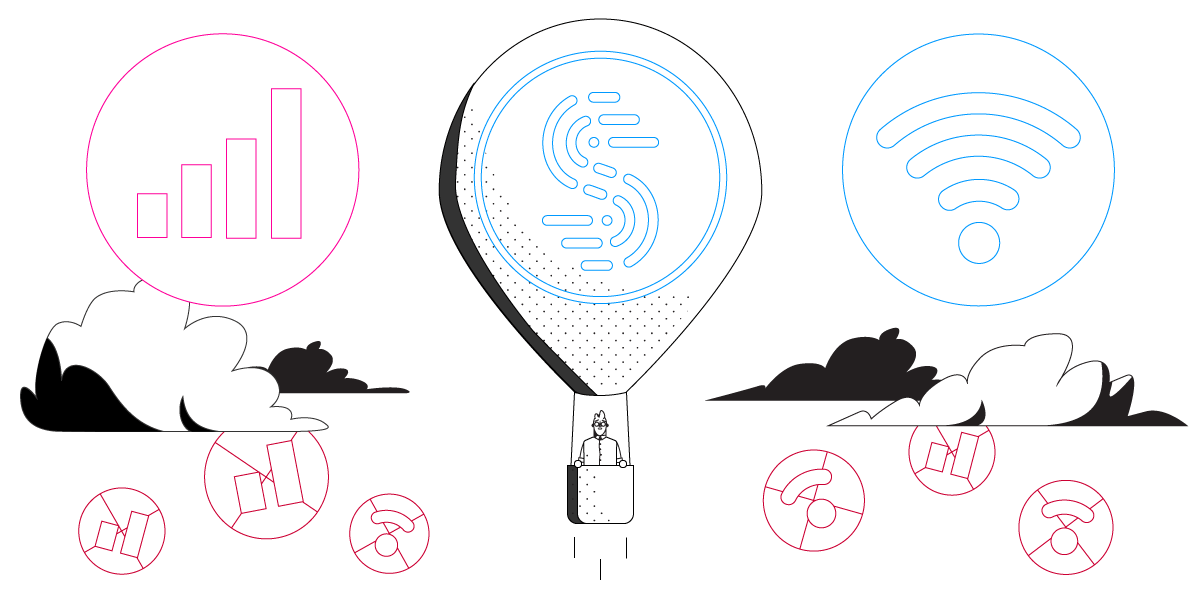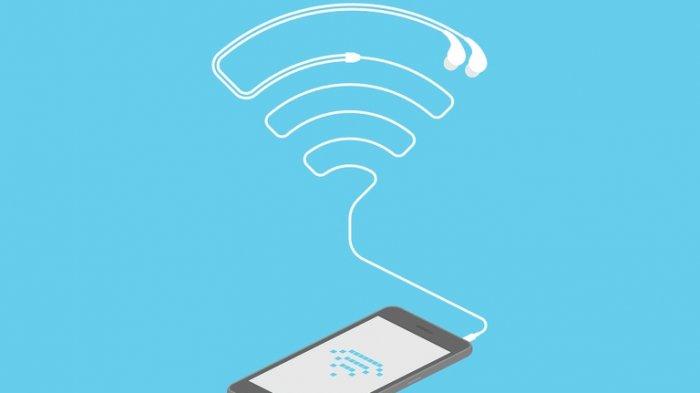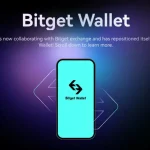Using crypto wallet on public Wi-Fi poses a question we often overlook: Is our digital money truly secure? Imagine you’re sipping your favorite coffee, your smartphone in hand, a public Wi-Fi connection your gateway to the online world. It feels ordinary, but lurking in that innocent-looking network could be risks that threaten your crypto wallet. Your hard-earned digital currency needs protection against the invisible threats that public networks harbor.
I’m here to guide you through understanding these risks, shoring up your defenses, and navigating the complexities of cryptocurrency security on unsecured connections. As an expert, I’ve seen numerous cases of vulnerabilities that could turn costly. Let’s dive into not only identifying these threats but also implementing solid measures that keep your investments as safe as your physical wallet tucked away in your pocket.
Understanding the Risks of Mobile Crypto Wallets on Public Wi-Fi
Identifying Common Threats to Your Digital Assets
When you use mobile crypto wallets on public Wi-Fi, you risk your money. It’s like waving your wallet around in a crowded place. Bad actors, hackers who want your digital coins, are always watching. These guys use shared Wi-Fi to trick your phone and steal from you.
But what threats are we talking about? First, there’s cryptojacking. This is when someone uses your device to mine cryptocurrency without you knowing. It slows your phone and drains your battery. You might not lose coins, but it’s still someone taking advantage of you.
Next, we’ve got SIM swapping. This is serious. A hacker takes over your phone number to get into your wallet. They talk to your phone company, pretend to be you, and transfer your number to their SIM card. Once they have that, they can reset passwords and access your money.
There’s also phishing. You might get a fake email or text saying there’s a problem with your wallet. It looks real, but it’s a trick to get your private info. When they have that, they can get into your account and take your funds.
Public Wi-Fi networks often have weak security. That helps attackers to listen in on your transactions. They can even set up fake Wi-Fi hotspots. When you connect, they can watch everything you do online.
So, mobile wallets and Wi-Fi hotspots can be a risky mix. We need to use safety measures for every online crypto exchange.
Mitigating Vulnerabilities – From Cryptojacking to SIM Swapping
How can you fight these risks? You can’t stop hackers from trying, but you can make it really tough for them to get to you.
For cryptojacking, use a mobile security app. This app can block anyone from using your phone to mine crypto. It stops them in their tracks.
To stop SIM swapping, add extra security to your phone account. Most companies let you set up a PIN or password. With this, only you can make changes to your account.
To fight phishing, never give out personal info unless you’re totally sure it’s safe. Always double-check emails and texts, especially if they ask for private keys or passwords.
Always use a VPN, a virtual private tunnel, when using public Wi-Fi. VPNs encrypt your data. This means even if someone is watching, they can’t understand what your data says.
And use two-factor authentication for all your wallet apps. This way, even if someone gets your password, they still need another key to get in.
Encryption is also key for crypto wallet safety. It locks your data so only someone with the right key can unlock it.
Remember, avoid public internet for big money moves. It’s like not talking about money in a crowded bus. It’s just safer that way.
You can do things to keep your digital coins safe, even on public Wi-Fi. Use the right tools and remain vigilant to keep your crypto secure.
Employing Robust Security Measures for Online Crypto Transactions
Necessity of VPN Protection and Secure Connection Protocols
Should you use a VPN when doing crypto deals on public Wi-Fi? Yes, you should. A VPN, or virtual private network, makes the data you send look unreadable to others on the same network. It’s like sending a secret letter that only your friend can read. For safe cryptocurrency transactions on unsecured networks, using a VPN comes first. It hides your real IP address and scrambles your internet traffic. This way, hackers can’t see what you’re doing or steal your info.
It’s easy to jump onto free Wi-Fi at places like coffee shops. But these spots are not always safe. Risks of mobile crypto wallets and Wi-Fi hotspots are real. Hackers love these places. They set up fake Wi-Fi spots or watch the data you send over the network. They want to grab your money or personal details. VPN protection for crypto transactions keeps you one step ahead of hackers. It also sticks to secure connection tips for blockchain transactions.
Imagine locking your door with a special key that only you have. That’s what a VPN does online. It locks your data away as it moves across the internet. This keeps your crypto wallets safe in public spaces.
The Role of Two-Factor Authentication and Encryption in Wallet Safety
For another layer of safety, use two-factor authentication for wallet apps. It’s a bit like a guard who checks two IDs before letting you into a fort. Even if someone knows your password, they can’t get into your account without this second check. It might be a code on your phone or a fingerprint. Because your phone is yours alone, it’s tough for hackers to fake this step.
When you encrypt for crypto wallet safety, you turn your data into a secret code. Even if hackers get your data, they can’t understand it. Encryption is a big word, but it’s just like turning a note into a puzzle that only your friend knows how to solve.
As for public Wi-Fi vulnerabilities and crypto assets, thieves have tools to watch your data on open networks. They look for things like your wallet’s private keys. Safeguarding private keys on public networks is vital. You need strong passwords and updated software to fight off these attacks.
When you’re using your phone to trade, using mobile data for crypto trades can be safer. Open Wi-Fi networks are like a town square where everyone can see what you do. Mobile data is more like a private road to your house. Less traffic means less chance of trouble.
Remember, your money is on the line. Avoid public internet for financial operations if you can. It’s just not worth the risk. Terms like blockchain security on untrusted connections or HTTPS and crypto wallets on communal networks sound complex. But they boil down to keeping your crypto safe and sound. It means taking extra steps to protect what’s yours. Stay sharp, use strong security measures, and keep your crypto locked down.
Best Practices to Shield Your Cryptocurrency on Unsecured Networks
Why You Should Avoid Public Internet for Financial Operations
Public Wi-Fi seems handy for a quick crypto check, but stop. Ever wonder if someone is peeking at your coins while you’re on that free Wi-Fi at your favorite cafe? They could be. Here’s why you might want to think twice: Public internet is like a giant listening device. Anyone can grab your data if they try hard enough. They can steal your crypto money without you knowing.
So, what can you do? First, use a VPN. This stands for Virtual Private Network. It keeps your internet traffic under wraps. Think of a VPN as a secret tunnel. Only you can use it. It hides all you do from prying eyes. This keeps your digital wallet away from sneaky thieves. Always turn it on before doing anything with your crypto.
Next, go for two-factor authentication, or 2FA. This means you need two types of proof to get into your wallet. Like a password and a text message code. It’s like having a double lock on your door. It makes it harder for bad guys to get in. You must use 2FA, no excuses. It’s easy to set up and saves you headache later.
Lastly, encrypt all the things. Encryption scrambles your info. It turns it into a secret code. Only you have the key to make sense of it. So even if someone gets your data, they see gibberish. Encryption is your silent bodyguard. It never sleeps, keeping your wallet safe round the clock.
Using Portable Hotspots and the Benefits of Cold Storage Methods
Say you’re out and need to trade some crypto. But oh no, only public Wi-Fi is around. What now? Grab a portable hotspot. This is your own internet bubble. No one else can pop it. Your hotspot makes sure it’s just you and your crypto.
But hey, there’s something even cooler – cold storage. Think of it as putting your digital coins in a deep freeze. Cold storage means your crypto isn’t online. It’s locked away on something like a USB stick called a hardware wallet. It’s safe from hackers because they can’t touch it if it’s not on the internet.
Remember, when you are not trading, keep everything in cold storage. Why? Because if it’s online, it’s like leaving your house with the door wide open. You’re practically inviting thieves in. But in cold storage, they can’t get their hands on your coins.
And here’s a tip: if you must use Wi-Fi, pick networks you trust. Know the risks of mobile crypto wallets and Wi-Fi hotspots. Your coins are like gold. You wouldn’t leave gold on the table while you grab a coffee, right?
Last thing, always check for HTTPS in the web address. This means the site you’re using is locked tight.
To wrap it up, stay smart with your crypto. Avoid public Wi-Fi for big money stuff. Use VPNs, 2FA, encryption, and cold storage to keep your wallet smiling. Be the pro who knows how to keep your digital treasure away from digital pirates.
Advanced Precautions: Beyond Basic Wallet Security Practices
Detecting and Avoiding Compromised Public Wi-Fi Networks
You know to be careful on public Wi-Fi. But how can you tell if a network is safe? To check if a public Wi-Fi is safe, see if it asks for a login or credit card info. It’s likely unsafe if it does neither. When a public Wi-Fi network doesn’t need a password or has a simple one shared with many people, that’s a red flag. Hackers love these because they can snoop on your online moves. So, to be safe with your crypto wallet, use your own mobile data. Or get a trustworthy VPN.
Now, let’s dig deeper. Public Wi-Fi is often unsecured, leaving your crypto wallet’s private keys out in the open. A secure VPN protection for crypto transactions is vital. It creates a secure “tunnel” for your data. When you use Wi-Fi, have VPN on first. This shields your actions from prying eyes.
Educating on Comprehensive Crypto Wallet Security Practices
Ever heard of “SIM swapping”? It’s like a magic trick for hackers to access your wallet. They trick your cellphone provider to switch your number to their SIM card. Then, they can reset passwords and get into your wallet. Ouch! Always keep a tight grip on personal details and use two-factor authentication for wallet apps. Plus, encryption is your friend. It protects your data so others can’t read it.
Teaching folks about crypto wallet security means showing how to spot phishing attacks, too. Don’t click on strange links or give out your keys. Also, rethink storing large sums of crypto in mobile wallets on shared networks. You’re safer with a hardware wallet or using cold storage advantages on public networks for big sums.
So, it’s simple, right? Check for Wi-Fi safety, use VPN and mobile data, don’t share personal info, and pick the right wallet. Keep these tips in mind to dodge risks of mobile crypto wallets and Wi-Fi hotspots. Stay sharp out there!
In this post, we tackled mobile crypto wallet risks, especially on public Wi-Fi. We learned to spot threats and beef up our defenses. It’s crucial to use VPNs and two-factor authentication to keep our digital money safe. Remember, public networks are risky for trading or storing crypto. Hotspots and cold storage can protect our funds better. We also went beyond the basics, learning to find safe networks and deepen our security smarts. So stay sharp, use these tips and keep your cryptocurrency secure. Your financial safety is in your hands!
Q&A :
Is it safe to access my crypto wallet on public Wi-Fi?
Using a crypto wallet on public Wi-Fi can be risky as public networks are less secure than private ones. Hackers can exploit vulnerabilities to steal sensitive information. It’s recommended to use a virtual private network (VPN) to encrypt your data or avoid public Wi-Fi for crypto transactions.
What precautions should I take when using my crypto wallet on public Wi-Fi?
To increase safety on public Wi-Fi, always use a trustworthy VPN and ensure your wallet’s software is up to date to protect against any known vulnerabilities. Additionally, utilize two-factor authentication (2FA) and consider a hardware wallet for an added layer of security.
Can public Wi-Fi compromise my crypto wallet?
Public Wi-Fi networks have the potential to compromise the security of your crypto wallet due to their typically lax security protocols. If a network is compromised, attackers can intercept and manipulate the data transferred, potentially accessing your wallet credentials.
How can I securely manage my crypto assets using public Wi-Fi?
Secure management of crypto assets on public Wi-Fi includes using encrypted connections via a reputable VPN. Always double-check website URLs to avoid phishing scams, use strong, unique passwords, and enable 2FA on all accounts relevant to your cryptocurrency transactions.
What are the risks of public Wi-Fi networks regarding cryptocurrency transactions?
The risks of using public Wi-Fi for cryptocurrency transactions include the threat of man-in-the-middle attacks, phishing schemes, and network sniffing. Attackers may capture sensitive data, like wallet keys or login credentials, and unauthorized access to your funds can occur if security is compromised.




